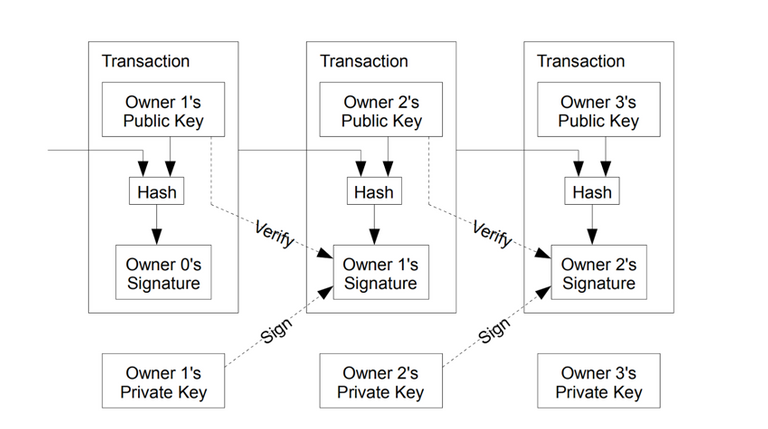
Photograph by Thomas Trutschel
OK maybe making you into a bitcoin expert is a bit beyond this blog posts abilities, so let’s focus on getting ahead of the pack. Fortunately for us, it’s not all that difficult, as much as people are talking about bitcoin most are still unsure about what really makes it work.
Understanding the not so basic basics
Often people get told about bitcoin in broad terms when they first hear about it, and come to understand it as simply a digital currency. While it can function in the same way that fiat currency functions today, as a value of exchange between two parties, bitcoin is a radically different way to store and transfer wealth and a totally new commodity in and of itself. To show you why we will introduce you to the fundamentals of a bitcoin transaction.

Like gold bitcoin has a limited supply, and so it is seen as a similar guard against inflation
You may already know that a bitcoin is divisible down to 8 decimals, or 0.00000001 BTC, a unit referred to as a Satoshi, and that supply is limited to 21 million. But what actually makes up a bitcoin?
As defined in Satoshi Nakamato’s white paper, a bitcoin is “a chain of digital signatures.” This means that in order for you to own an amount of bitcoin the previous owner must create something called a hash of the previous transaction with your public key and sign it with their private key. Once this action has been added to a block in the blockchain and the transaction is confirmed, the owner of the private key paired to the public key in the hash now owns the bitcoin.
Can you hash it?

A cryptographic hash is probably not as delicious Elise Bauer’s corned beef hash
If you want to get to the heart of bitcoin you need to get a grip on the concept of cryptographic hashes. Hashes are an integral part of bitcoin and are made use of at several stages. Luckily for hashes, they also have a life outside of bitcoin, where they are used in all types of security. One example being how hashes are used as a way to confirm that when you have downloaded an untampered computer file. A hash takes an input, and no matter the length or order of the input, creates a standardized output. A hash is deterministic as it will always produce the same output. Importantly they can’t be reversed, so you can’t arrive at an input from a hashing output. A hash is also unique, and no two inputs will create the same outputs. This is useful for checking the integrity of computer files, as if when you hash the file and the output is different to what your reputable source says it should be, you can be certain it has been tampered with.
Bitcoin uses two types of hashes, the SHA256 (short for Secure Hashing Algorithm) and the RACE Integrity Primitives Evaluation Message Digest (RIPEMD160) to create its hashes. These are utilized in the creation of bitcoin and script addresses as well as the mining proof-of-work (PoW) system. The SHA256 hash was developed by the NSA and is widely applied to security protocols.
The “key” to understanding bitcoin

Now you understand how a hash operates let’s dig into private and public keys. Their usefulness for bitcoin lies in their ability to create digital signatures which can sign a transaction in a particular way. Private and public keys are known as asymmetric cryptography because whatever a public key encrypts can only be decrypted by its private key pair. This is what makes the transaction method in the above diagram possible.
In bitcoin a private key is a 256 string of binary digits, displayed as 64 hexadecimal digits. This means it is an extremely long number shown in a kind of shorthand to make it more manageable for us users. A private key is a random number, and the number of possible bitcoin private keys is unimaginably large.
Taking a key and making a wallet
When you download a bitcoin core wallet and start it up for the first time it will generate a new key in a way that ensures it is both random and in the correct format. The address must be within a certain value in order to produce a public key from it. As the production of a private key is random and keys are stored locally, a key can be generated without connecting to the network.

The public address is derived from the private through a non-reversible process called elliptic curve cryptography. Bitcoin uses a specific elliptical curve to generate a public address, which enables the process to be verified across the network. Slightly confusingly a public key is not the same as a bitcoin address. A bitcoin address (used for receiving transactions) is actually a public key which has been cryptographically hashed.
The goal of this post has been to lift the bonnet on bitcoin and introduce some of its essential components. The technology within bitcoin and the uses without mean there are a seemingly endless number of things to learn about it. If you want go deeper down the rabbit hole of blockchain programming we recommend Mastering Bitcoin: Unlocking Digital Cryptocurrencies Book by Andreas Antonopoulos, which talks about bitcoin more broadly as well.
Another area which is essential to know about before you can call yourself a bitcoin pro is security. This is covered well in online blogs such as this one, where the author does a decent job stirring up some paranoia.
Want to understand more about cryptocurrencies and blockchain world? Click here to access to the Bitspark show and get the last updates about the 2018 big crypto player: Zephyr altcoins

Hi Bitspark GM
I also Love Bitcoin & Crypto
its a good informative post I will read it twice
to gain more knoledge thanks for making this
Do visit my blog need your support heavly
I voted and comment U bro
@maujmasti
Thanks
Isn't the key to being an expert on Bitcoin just reading online and then repeating everything - lol. Just kidding. Great write-up
At Bitspark, we do our best to help people in the crypto world, make sure people are making the good choices. A lot more informative blog post on our website
Hi, great post, worth a follow. Looking forward to some more of your stuff.
Thanks come to your blog on https://blog.bitspark.io/ or subscribe to our newsletter to be up to date with the last crypto infos
Informative post!
thanks